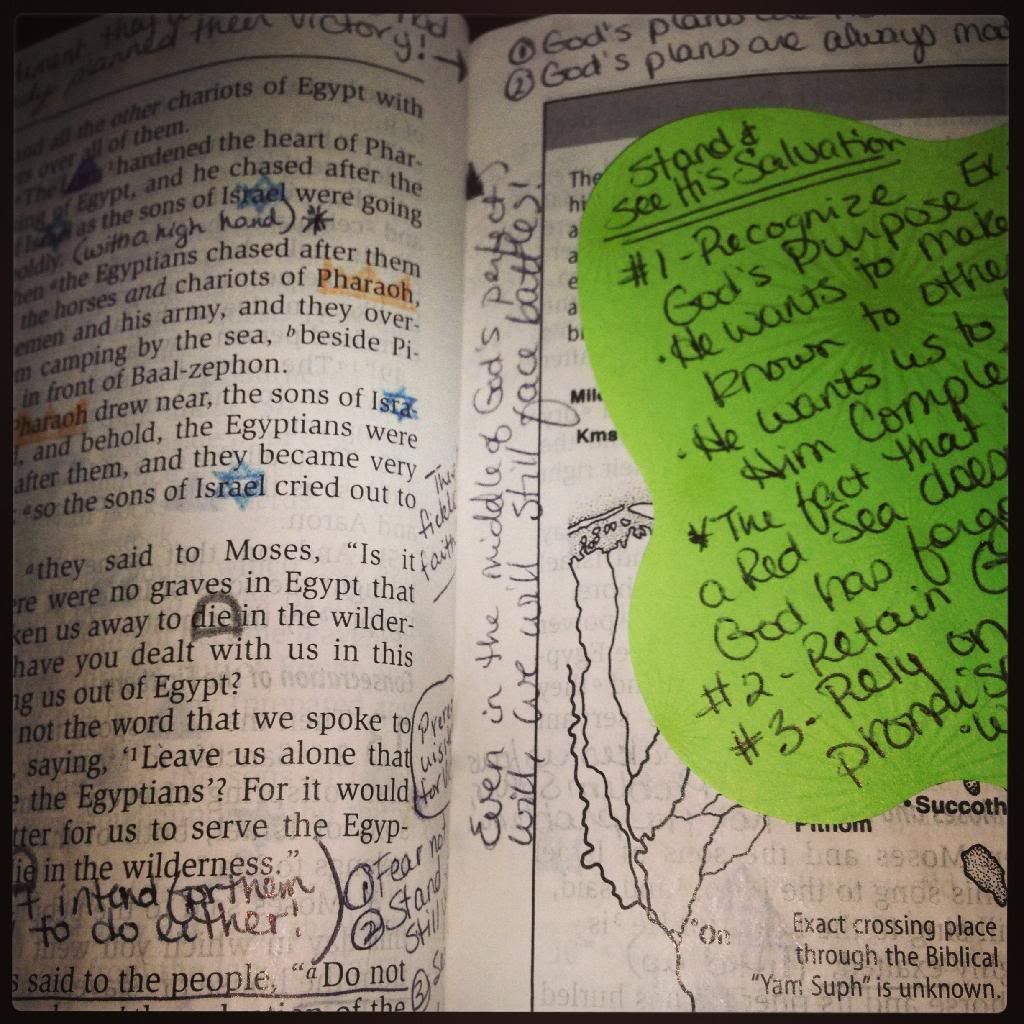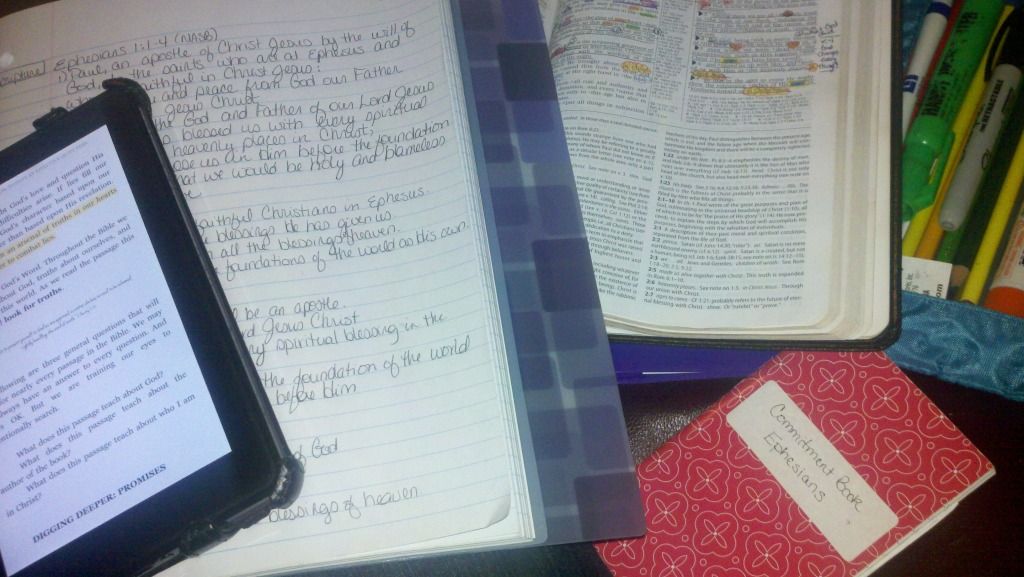After my last post, you're ready to start studying your Bible, right? You have a good study Bible, you have an idea of the type of study you want - now what? It's time to choose a Bible study.
There are many types of Bible studies available. Some are great for beginners, some can be overwhelming at first. Where do you start? Let's look at a few different types of studies you can do:
1. Big Picture Studies
These plans take you through major portions of the Bible, or the whole Bible. Examples are read the Bible in a year plans, the Bible in 90 days, or reading though the New Testament.
This year, I'm reading through the Bible. I've done it once before, about ten years ago. It's a good balance for me, and it only takes about fifteen or twenty minutes a day.
Even here, there are multiple plans to choose from - you can read the Bible cover to cover, chronologically or mixing Old and New Testament readings. You can do a plan like this year after year and change it up each time.
YouVersion has great free plans available to help you read through the Bible. For my reading this year, I'm using A Woman's Guide to the Bible in a Year by Diane Stortz. I'm enjoying going through this plan with a Facebook group. The arrangement alternates readings - one book in the Old Testament, one book in the New Testament or a few Psalms.
2. Detailed Studies
My favorite type of Bible study is inductive study. I love the depth of these studies - reading cross refernces, digging into the meaning of key words, marking maps, and really going deep into a text. I could spend weeks studying the same chapter.
If this type of study appeals to you, Kay Arthur's Precept Ministries is the best place to start. She offers a free download that explains the basics of inductive study and many free study guides that are go along with her TV series--they also work well for individual study.
3. Word Studies
The Bible wasn't written in English. The original Hebrew and Greek are very different from our language, and sometimes English just can't do as well with its descriptions. Word studies are perfect for going deeper into the Bible without getting overwhelmed.
Two great examples are Kerri Wyatt Kent's Deeper Into the Word books. One covers Old Testament words, and the other covers New Testament words.
4. Topical Studies
Topical studies cover specific topics from the Bible. The possibilities are endless--from prayer to parenting. Lysa Terkeurst and Stormie Omartain have great books and studies available to help you dig into specific topics.
5. Total Immersion Studies
This is my absolute favorite way to study the Bible. I don't know if it's technically listed as a method, but I love to focus completely on one book - studying it, writing it by hand in my journal, memorizing verses from it. I love to wrap my mind and heart completely around one book, digging into the individual words, using inductive study, and seeing how it fits into the bigger picture.
Although I haven't gone through one of her studies, some of Beth Moore's studies take this approach.
What method appeals to you the most? This week, look at a local Christian bookstore, online, or on the Apple or Android app store. Find a study or reading plan that is doable, gather a few supplies (notebook, colored pencils, or whatever you'll need for your specific study) and dive in.









